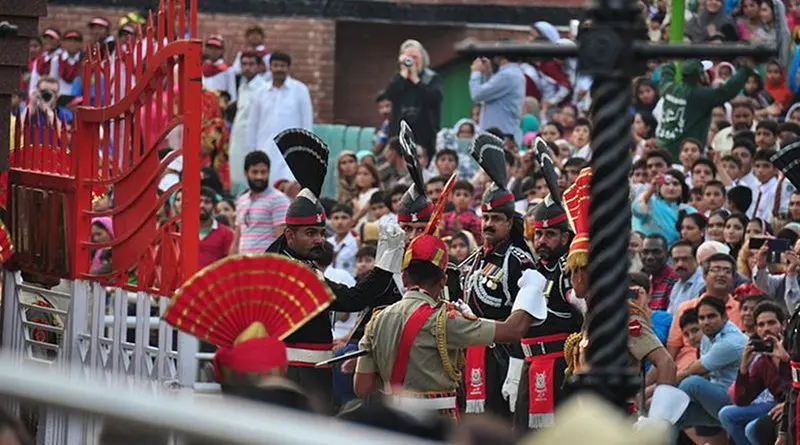Need For Cross-Border Media Cooperation Between India And Pakistan – OpEd
Efficacy of media ethics proliferated internationally since the arrival of MacBride report in 1980. Influenced by the need of a framework of ethics owing to augmenting globalization of media technologies that was proposed in “Many Voices, One World: Towards a New More Just and More Efficient World Information and Communication Order”, ‘International Principles of Professional Ethics in Journalism’ has become a standard format for ethical media principles since 1983. In these principles, major concern and emphasis regarding journalism and media ethics included: truth, responsibility, and freedom of expression. International theories have also contributed in the development of global media ethics.
For instance, Jürgen Habermas’ discourse ethics asserted the need of reasoned argument in communication/dissemination and national security must respect ‘Universal Human Rights’. Moreover, Article 20 of International Covenant on Civil and Political Rights clearly states that “1. Any propaganda for war shall be prohibited by law. 2. Any advocacy of national, racial or religious hatred that constitutes incitement to discrimination, hostility or violence shall be prohibited by law.” Hence, it can be inferred that hate speech/content is considered a serious crime as per mainstream international/state laws and media regulations.
Having said that, it is also understandable to have biases while discussing enemy/opposing states due to basic nationalistic instincts. Let us take the example of India and Pakistan, whose progress have consistently been hampered due to decades old wounds. Similarly, media on both side of this international border, no doubt, would definitely prefer to defend their own narratives and national security interests. Nevertheless, this is where when national strategic culture and its character is assessed as the responsibility to uphold internationally accepted norms and ethics also lies with the national government and the general public.
So, media is the face a nation that have both aspects, negative and positive, such as two sides of a coin. One will find scores of media personalities who are torch bearers of truth and responsible reporting. At the same time, many journalists and reporters have been major violators of media ethics. They not only flaunt media ethics and hamper rapprochement among opposing states but also harm inter-state and international relations. In this context, sometimes it is frustrating to listen to famous anchors such as Arnab Goswami as they would go to any length in order to degrade and abuse Pakistanis and to violate media ethical principles.
Indian media analysts and opinion makers often criticize Pakistan in a derogatory style that clearly falls in hate content/speech. Recently, in its verdict ‘Ofcome’-British media regulator found Indian media channel ‘Republic’ guilty and fined £20,000 for hate speech against Pakistanis. The controversial episode of “Poochta Hai Bharat” hosted by Arnab Goswami was broadcast on July 22, 2019. It featured a debate between Arnab Goswami & his guests relating to India’s attempt to send the spacecraft ‘Chandrayaan 2’ on its mission to the moon. The language / content in the program were abusive and derogatory about Pakistani people on the basis of nationality. In the tv show, Arnab Goswami conveyed the view that all Pakistani people are terrorists… “their scientists, doctors, their leaders, politicians all are terrorists, even their sportspeople, every child is a terrorist over there. You are dealing with a terrorist entity.” One guest also described Pakistani scientists as “thieves,” while another described Pakistani people as “beggars,”
‘Ofcom’ evaluated the media content that amounted to hate speech against Pakistan. It was determined that the statements in the program were potentially harmful and highly offensive to Pakistanis, who did not share sentiments being expressed by Arnab Ghoswami and his Indian guests. As per Ofcom (British Regulator) Rules 2.3, media channels must ensure that material, which may cause offence is unjustified and it include any content of offensive language, discriminatory treatment defaming anyone’s religion or belief.
The people and professionals of both nations do not trust each other, which makes cross-border exchange and cooperation among journalists between India and Pakistan absolutely necessary. The trend is not only worrisome but also dangerous. It demands cross-border exchange and increased dialogues, leading to germination of a media network for collaboration on issues of mutual interest and progress. Cross-border journalism exchanges and dialogues will also help in facilitating cross-border professional journalism; building long-term professional relationships among media organizations; promote fact-based regional news coverage; and instill media ethics in upcoming generations.
Across the border reporting is also important for building deescalating tensions in the times of crises. Regional media should also be connected with international correspondents for reinventing news and digital media in South Asia. Lastly, international media codes assist media organizations to struggle for global perspective rather than narrow self-interests. Despite a host of dilemmas and moral issues that the media face in today’s volatile world, the media should emphasize commitment to truth, human dignity and nonviolence. Such communication education will make media ethics sustainable.
*Adeel Mukhtar Mirza, Assistant Research Associate, Islamabad Policy Research Institute

